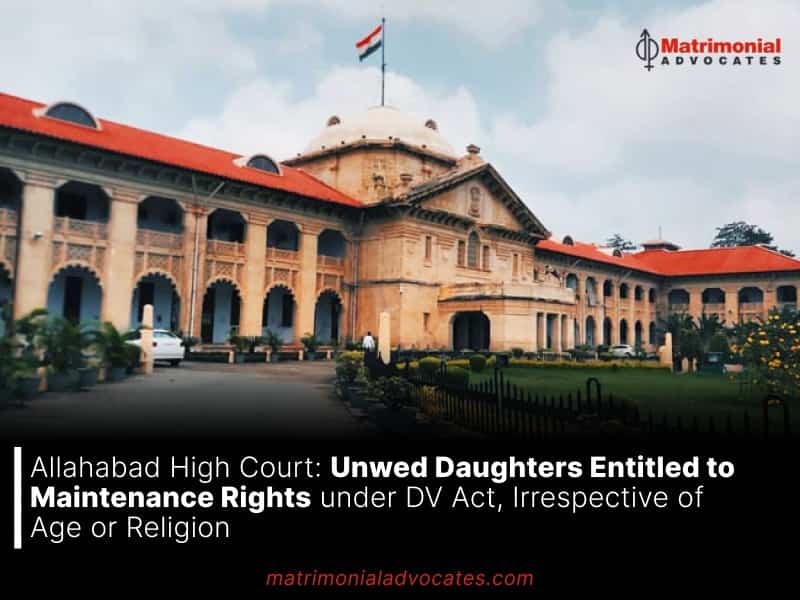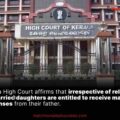
The Court said that while the substantive right to receive maintenance may emanate from other laws, a quicker and shorter procedure to obtain the same has been provided under the DV Act.
The Allahabad High Court’s recent ruling reinforces the entitlement of unmarried daughters, regardless of their age or religious affiliation, to seek maintenance under the Protection of Women from Domestic Violence Act, 2005 (DV Act). The case in question, Naimullah Sheikh and another v. State Of UP & Ors, brought attention to this verdict. Justice Jyotsna Sharma conducted a thorough analysis of the DV Act’s provisions, determining that any woman facing domestic violence is eligible for relief under the legislation, irrespective of her age, whether a minor or an adult. Justice Sharma’s decision was substantiated with references to relevant Supreme Court judgments.
“…there remains no doubt that unmarried daughter, whether Hindu or Muslim has a right to obtain maintenance, irrespective of her age.”
The court reviewed a petition challenging a directive from a judicial magistrate, instructing a Muslim man to pay interim maintenance of ₹3,000 each to his three daughters. The daughters, who presented themselves before the magistrate, claimed that their mother passed away in 2015, and their father remarried while she was still alive. They alleged mistreatment and physical abuse from both their father and stepmother.
The father opposed the lower court’s decision, arguing that the magistrate overlooked his old age, infirmity, and lack of income. Additionally, he asserted that since his daughters are adults, they are not eligible for maintenance.
Justice Sharma scrutinized the preamble of the DV Act, underscoring that the 2005 law was enacted to provide “more effective protection to women.” The insertion of the word “more” before “effective protection of rights of woman” was considered a significant addition by the single judge.
The court also rationalized that, while the right to receive maintenance may arise from other laws, the DV Act offers a quicker and more streamlined procedure to obtain such relief.
“The rights which the parties may have under other laws whether civil or criminal, have been given a cutting edge by the Act. In my view, this explains the use of words “more effective protection to women” in the foreword which described the reasons behind this enactment.”
The court noted that the rights granted to a distressed individual under the DV Act are rooted in the experience of various forms of violence, encompassing physical, mental, sexual, verbal, or emotional abuse. The court underscored that this violence could also encompass economic exploitation. In its examination of Section 20(1) of the Act, which deals with the costs or damages suffered by an aggrieved individual due to domestic violence, the court expressed that…
“From reading this part, this impression gains ground that irrespective of other factors like dependency, age or marital status etc (which may be relevant in or under any other law) the aggrieved person has an independent right to obtain monetary relief for expenses incurred and losses suffered because of domestic violence.”
In concluding that an unmarried daughter has the right to seek maintenance under the DV Act, the Bench specified that, in cases related to maintenance, courts should also take into account the applicability of other relevant laws.
“However, where issue does not pertain to mere maintenance, the independent rights are available to an aggrieved under section 20 of the DV Act itself,” it added.
Finding no good ground to interfere with the magistrate’s order, the Court dismissed the petition.





